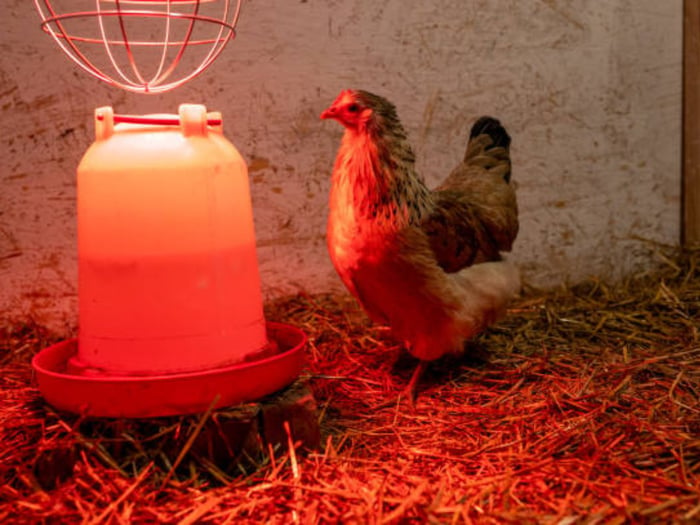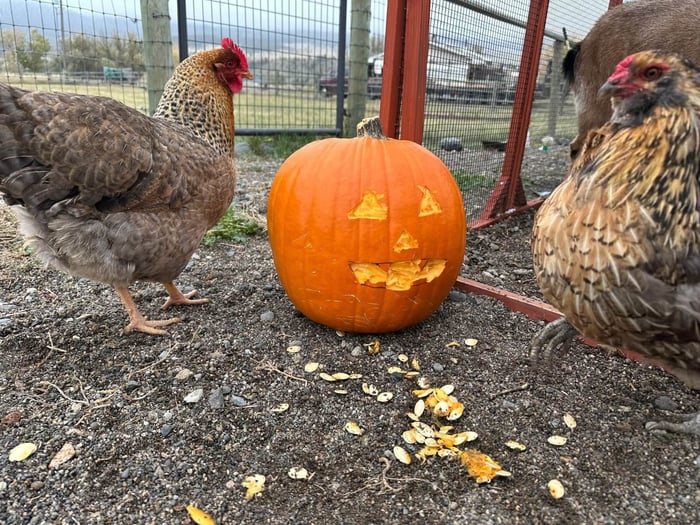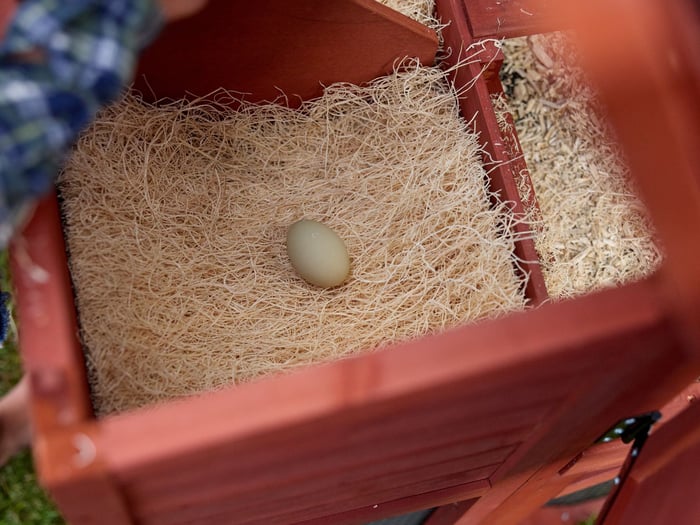Table of Contents
- Heated Chicken Waterer: Keep Your Flock Hydrated All Winter Long
- Why Fresh Water Matters Even More in Winter
- The Struggle with Traditional Waterers
- Understanding Your Options: Heaters, Waterers, and Placement
- How to Set Up a Heated Chicken Waterer
- What to Do If You Live in a Warmer Climate
- Common Mistakes to Avoid in Winter
- Why a Heated Chicken Waterer Is Worth It
- Final Thoughts
- FAQs
Heated Chicken Waterer: Keep Your Flock Hydrated All Winter Long
Winter brings cozy nights for us—but for chickens, it brings frozen waterers, frosty mornings, and more work for you. If you’ve ever woken up to find your flock’s water frozen solid, you know just how frustrating it can be.
That’s why every chicken keeper needs a heated chicken waterer once temperatures start to dip. It’s not just a convenience—it’s one of the most important tools to keep your flock healthy, hydrated, and laying strong through the cold months.
In this guide, we’ll walk through everything you need to know about keeping your hens’ water from freezing, how to set up your heated chicken waterer properly, and which systems work best for different climates (including warm-weather tips for our southern chicken keepers).
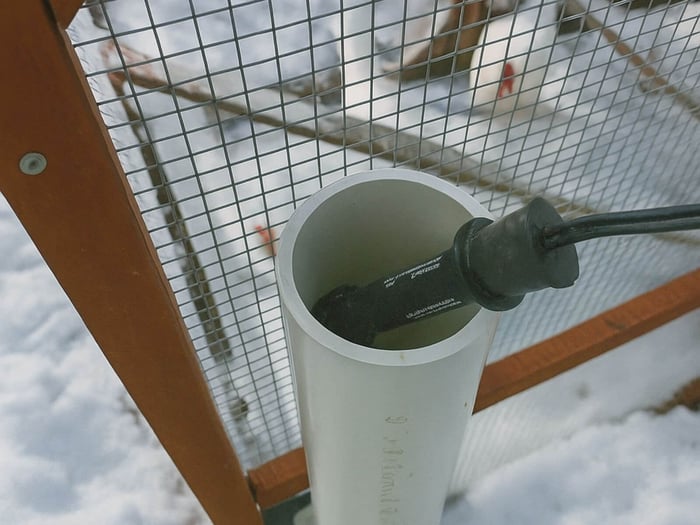
Why Fresh Water Matters Even More in Winter
When the temperature dips below freezing, your chickens’ need for hydration actually increases. That’s because their bodies are working harder to stay warm, and hydration helps regulate temperature, digestion, and egg production. Even mild dehydration can cause egg laying to slow or stop, and it can also make chickens more susceptible to frostbite and illness.
Chickens don’t always drink as much when it’s cold, so ensuring they have access to clean, unfrozen water encourages them to sip throughout the day. Water that’s icy or frozen solid quickly discourages drinking, leading to dehydration before you even realize it.
That’s where a heated chicken waterer setup becomes an essential part of your winter routine. Instead of constantly breaking ice or carrying out warm water multiple times a day, a heating system keeps the water at a steady, above-freezing temperature—without overheating it.
The Struggle with Traditional Waterers
Standard plastic or metal chicken waterers do a great job in moderate temperatures, but once freezing weather hits, it’s a different story. A thin layer of ice can form on the surface of the water overnight, and in colder regions, the entire reservoir can freeze solid by morning.
That’s not just inconvenient—it can lead to cracked containers, wasted time, and stressed chickens. You can try to move the waterer indoors overnight or add warm water periodically, but those are short-term fixes at best.
A heated chicken waterer, on the other hand, provides long-term reliability. Whether you use an integrated heated base, a heating panel, or our chicken coop waterer and water heater, your hens will always have access to fresh, flowing water.
Understanding Your Options: Heaters, Waterers, and Placement
Let’s break down the main components that help prevent frozen water in your coop setup.
1. Heated Chicken Waterer
A heated chicken waterer is designed specifically to keep water from freezing during the winter months. It usually includes a built-in or attached heating element that gently warms the water reservoir to maintain a safe, liquid state.
Our is designed for convenience, efficiency, and flock health. It automatically refills when connected to your garden hose, so your hens always have access to fresh water—no heavy lifting or constant refilling. When winter arrives, pair it with our for a safe, low-energy heating solution that prevents freezing even in below-zero temps.
This combination turns your standard water setup into a fully functional heated chicken waterer that works seamlessly all season long.
2. Heated Base
If you already have a plastic or metal waterer, a heated base is another option. These sit underneath your existing waterer and gently radiate heat upward to prevent ice formation. They’re a good choice for smaller flocks or mild climates, though they often require close monitoring to ensure even heating.
3. Coop or Run Placement
The placement of your waterer can make a surprising difference in how well it resists freezing. Position it in a sheltered spot away from direct wind or drafts—inside your run under a covered area, or inside the coop near an insulated wall.
Avoid placing it too close to heat lamps or direct heaters, as this can overheat the water and increase humidity levels (which can lead to frostbite issues). Ideally, your heated chicken waterer should stay cool to the touch while still maintaining liquid water, even when the surrounding air temperature dips below freezing.
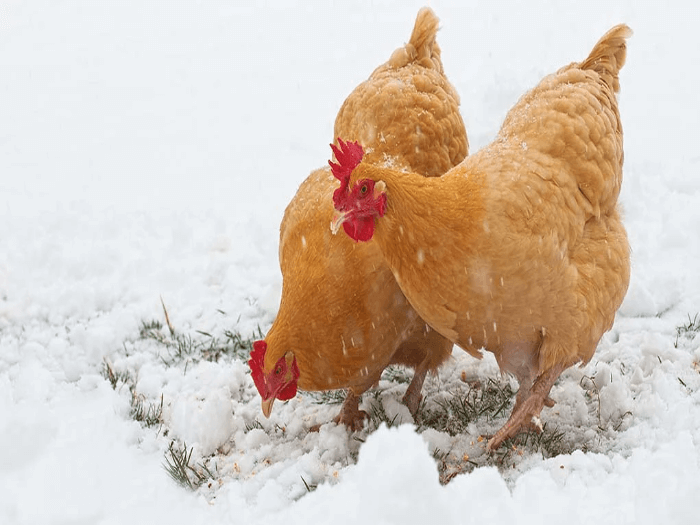
How to Set Up a Heated Chicken Waterer
Setting up a heated chicken waterer is simpler than most chicken keepers expect. Here’s a quick step-by-step:
Choose a safe power source — Use an outdoor-rated extension cord and ensure it’s protected from moisture and pecking. If possible, run it through PVC pipe or a weatherproof cable protector.
Place your waterer on a level, raised surface — This keeps it off the cold ground and reduces exposure to drafts.
Attach your water heater — The is designed to fit perfectly with our waterer. It installs easily and runs efficiently, providing reliable warmth without overheating.
Check often — While a heated system does most of the work for you, it’s always smart to do a quick check each morning to ensure cords are intact and water levels are steady.
Clean regularly — Even in cold months, algae and sediment can build up over time. Give your heated chicken waterer a quick scrub every few days to keep the water fresh and appealing.
With this setup, you can confidently step back knowing your flock has consistent access to water, no matter how cold it gets.
What to Do If You Live in a Warmer Climate
Not everyone faces frozen water challenges in winter—but that doesn’t mean you’re off the hook for water maintenance. Even in mild climates, chickens still need constant access to clean water, and refilling a traditional waterer can get old fast.
That’s where our comes in. It connects directly to your garden hose and automatically refills, keeping your hens hydrated all season long, no daily trips with the jug, no spills, and no worries.
In warmer regions where temperatures rarely dip below freezing, the Thirsty Bird functions as an easy, efficient, year-round solution.
Even if you don’t technically need a heated chicken waterer, the convenience of an automatic refill system makes it a worthwhile upgrade that saves time and hassle every single day.
Thirsty Bird Continuous Chicken Waterer

$ 69.99
$ 89.99
Say goodbye to daily water refills with the Thirsty Bird, our continuous waterer keeps your flock hydrated—without lifting a finger. Designed to connect directly to your garden hose, this hands-off hydration system ensures your chickens always have clean, fresh… read more
Common Mistakes to Avoid in Winter
Even with the best heated chicken waterer setup, there are a few easy mistakes that can cause headaches:
Placing water too close to heat source: Not only is this a fire hazard, but it can cause excess moisture and frostbite.
Overheating water: Chickens prefer cool, fresh water, not warm or steamy. Your goal is to keep it from freezing, not turn it into tea.
Not checking water quality: A heated system keeps water liquid, but it doesn’t clean it. Keep it fresh with regular rinses.
Avoiding these pitfalls keeps your coop safe, your flock hydrated, and your routine stress-free.
Why a Heated Chicken Waterer Is Worth It
When winter rolls in, small upgrades can make a big difference. A heated chicken waterer setup saves you time, prevents emergencies, and keeps your hens healthy and productive.
Here’s what makes our Waterer and Water Heater combo stand out:
Designed for year-round use
Safe, energy-efficient heat control
Simple installation and easy cleaning
Durable construction built to last
Compatible with most coops and runs
Whether you’re battling bitter cold or just want a more reliable watering system, this duo helps make winter chicken keeping simpler than ever.
Chicken Waterer

$ 99.99
Choosing the Right Chicken Waterer Model If you have an Orpington Coop please order the Orpington Waterer. If you own a coop that has a run that is 30" wide you can order the "Small Waterer" and it will fit.… read more


.png)
